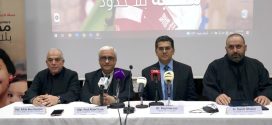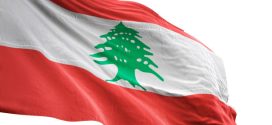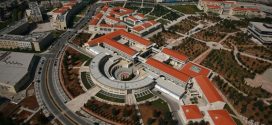Who is attacking the churches in Mount Lebanon, Bekaa, South Lebanon and Zahle?
UCIP Lebanon warns of continuing the policy of silence and non- prosecution
The International Catholic Union of the Press – Lebanon (UCIP Lebanon) issued the following statement: Under the conditions prevailing in Lebanon and some countries of the region, accompanied by the developments at the political, social and security levels, especially since, these attacks included prayer groups within the churches and home resident families. In addition, the threats, that their accuracy is still uncertain, reported in the Arab and International media and aimed each Christian in the Middle East, are considered in Lebanon as miscellaneous from daily news, rather than reactions at the level of these facts and incidents , we are surprised the reactions were few and shy, until a flagrant assault on the Church of Syriac Orthodox in Zahle occurred.
Some think that this silence must be appreciated since it reflects wisdom and wide vision, yet, in this painful reality, it is evident to draw the attention of the different responsible people of public affairs, even in politics, security, religion or media, to the seriousness of what is becoming in the national conscience “simple and normal news”, when these are warnings if we know how to read the “times signs” in the reality of what is happening in the region and what it is related to Lebanon through the following truths and facts:
1-During the last two month, series of similar attacks occurred and aimed churches, monasteries or worship houses in Metn, Kesserwan, Zahle, Jbeil and Bent Jbeil areas. Consequently the places are: “Oum Al Maouna” in the Assyrian Street in Al Fanar and this street belongs to the police station of Jdeidet Al Metn, Church “Mar Abda” in Roumieh- El Metn, knowing that it is the third time this church is attacked, church and monastery of “Saint Theresa” in Kleiaat-Kesserwan, church “Habalin” in Jbeil, the worship place for Saint Mary in Ain Ebel, and the Syrian Catholic Church in Zahle which had an explosion.
2-What is strange is the withdrawn media coverage restricted to some Lebanese media, in other hand, obvious silence controls almost all local and international media. If the purpose of silence is to prevent religious strives and sedition that many political parties warn from, everyone is responsible also to spread the reality and know the origin of this trouble in order to solve this sedition and not the opposite.
3-We therefore ask to officials and concerned agencies and institutions not to slacken in following-up the inquiries and investigations initiated, and which have so far revealed three of the actors in Al Fanar as announced in the media.
4-That the Lebanese public opinion, particularly Christians, that is still believing in the government and its institutions holds great hope on the responsible parties waiting for relevant results in the near futur, in order to prevent more disappointment and to limit the disbelieve of the government in youth thoughts.
5-It must be remembered that it was expected, after the Taef Agreement, that the government will stop the attacks on religious symbols that are hugely numerous in the regions where hundreds of churches and Christian centers are still destroyed waiting for a reconstruction and restoration sponsored by the government.
6-Keeping all these things as they are so far without the decision of the government to rebuild, and the continuous demolition and violation of the sacred symbols that are around 40 between 2000 and 2011, can accelerate the situation. And if this situation will continue with this manner, nourished by the confessionalism and the culture of violence and terrorism based on religious texts, this can enlarge the gap between the Lebanese components and provide the means to provoke the war between religions and cultures.
7-We appeal everyone to work on stopping the series of violations of holy places and the policy of shame and silence in order to maintain hope in the hearts of the generations and preserve what is left of faith in the “mission of civilization” which was associated to Lebanon.
Translated by: Anita Chaddad


 الاتحاد الكاثوليكي العالمي للصحافة- لبنان اوسيب – لبنان
الاتحاد الكاثوليكي العالمي للصحافة- لبنان اوسيب – لبنان




